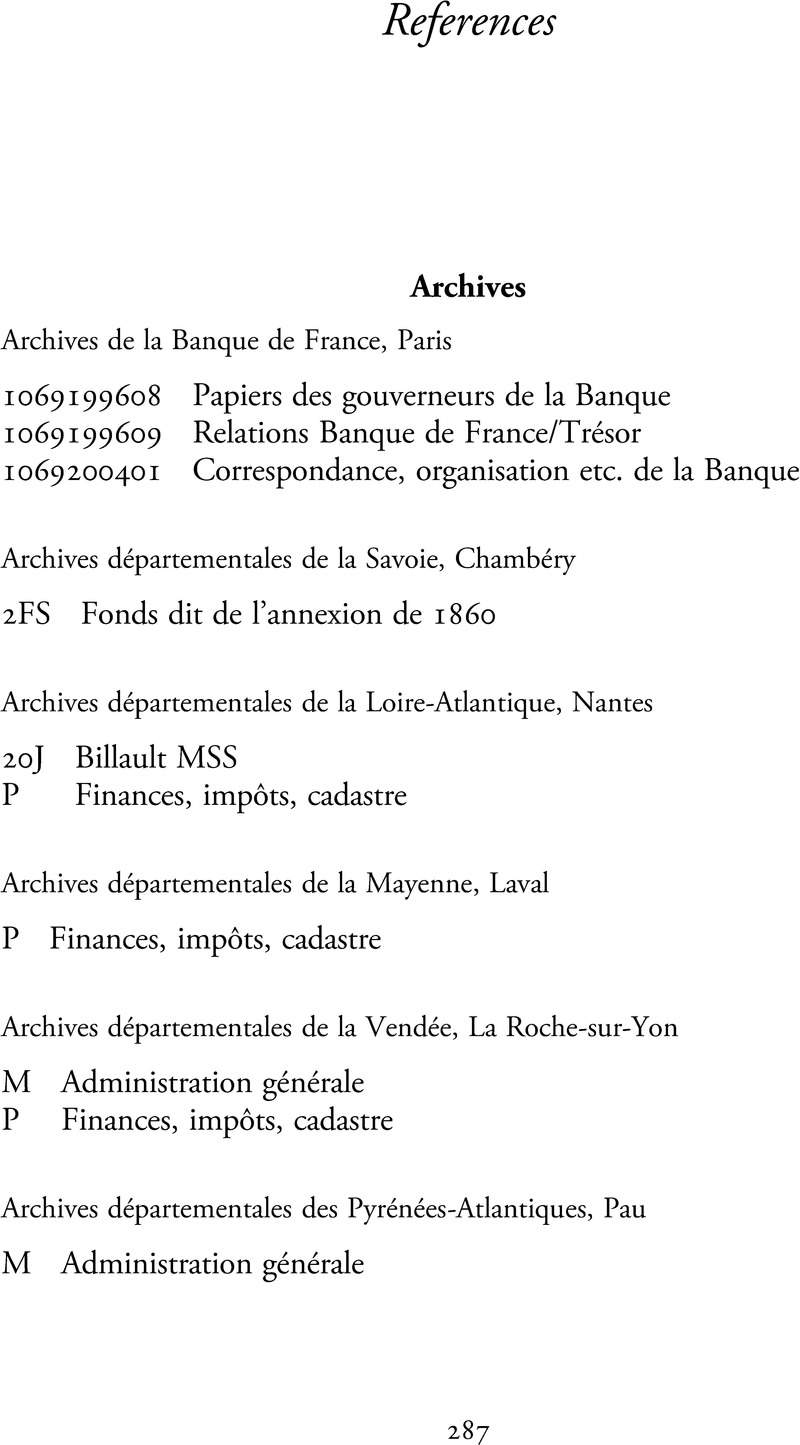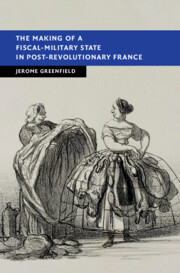Book contents
- The Making of a Fiscal-Military State in Post-Revolutionary France
- New Studies in European History
- The Making of a Fiscal-Military State in Post-Revolutionary France
- Copyright page
- Contents
- Figures and Tables
- Acknowledgements
- Abbreviations
- Chapter 1 The Nineteenth-Century French State and Its Rivals
- Chapter 2 The Revolutionary Quest for Fiscal Stability, 1789–1799
- Chapter 3 Developing a Post-Revolutionary Fiscal Politics, 1799–1814
- Chapter 4 Recasting the Fiscal-Military System, 1814–1821
- Chapter 5 The Resurgence of French Power, 1821–1830
- Chapter 6 The 1830 Revolution and the Limits of Fiscal Reform
- Chapter 7 The Ascent of the Interventionist Orleanist State, 1830–1848
- Chapter 8 The Rise and Fall of Austerity, 1848–1856
- Chapter 9 Reaching the Limits of the Fiscal-Military System, 1856–1871
- Chapter 10 The Triumph of the Notables
- References
- Index
- References
- The Making of a Fiscal-Military State in Post-Revolutionary France
- New Studies in European History
- The Making of a Fiscal-Military State in Post-Revolutionary France
- Copyright page
- Contents
- Figures and Tables
- Acknowledgements
- Abbreviations
- Chapter 1 The Nineteenth-Century French State and Its Rivals
- Chapter 2 The Revolutionary Quest for Fiscal Stability, 1789–1799
- Chapter 3 Developing a Post-Revolutionary Fiscal Politics, 1799–1814
- Chapter 4 Recasting the Fiscal-Military System, 1814–1821
- Chapter 5 The Resurgence of French Power, 1821–1830
- Chapter 6 The 1830 Revolution and the Limits of Fiscal Reform
- Chapter 7 The Ascent of the Interventionist Orleanist State, 1830–1848
- Chapter 8 The Rise and Fall of Austerity, 1848–1856
- Chapter 9 Reaching the Limits of the Fiscal-Military System, 1856–1871
- Chapter 10 The Triumph of the Notables
- References
- Index
- References
Summary

- Type
- Chapter
- Information
- Publisher: Cambridge University PressPrint publication year: 2022

